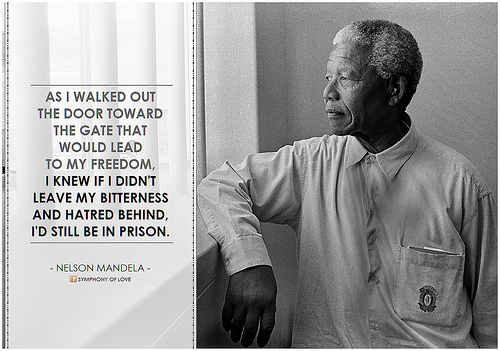You can change the political conversation. Chip in to rabble’s donation drive today!
Nelson Mandela remains preeminent amongst revolutionary political leaders who throughout the globe have fought against imperialism, colonialism and racism, in particular.
In certain respects, he belonged to a long tradition of revolutionaries, the likes of Fidel Castro, Che Guevara, Mao Tse Tung, Simon Bolivar and many others who, in challenging imperialism and colonialism, succeeded in varying degrees. History here will be the judge.
The excesses of political violence of the imperialist and apartheid system cannot be exaggerated and have seriously marred the African psyche in so many different directions, in that history records no other civilization which has been so ‘brutalized’ ‘scarred’ and ‘transformed’ by successive invasions so much so that their very spirituality, morality and their culture has in fact has been ‘bastardized’ to modernity.
In Marxist lexicon they are rapidly ‘transformed into’ modes of production by the West and the Chinese. The fact that Mandela, in spite of these gross immoralities and violations of his fundamental human dignity and freedom, emerges as a compassionate leader of all the people in the country must be seen as extraordinary.
Having said that, the negotiations at Convention for a Democratic South Africa (CODESA) primarily advised by the external wing of the African National Congress (ANC) and a strong force of neo-imperialist masters in the background prevented what might be considered within the poorer communities to have sold the liberation down the drain. Mandela having been incarcerated in prison for many decades could not have understood the machinations of the Western nations and the geopolitics, through which they maintain hegemonic power especially when negotiating human freedoms against capital.
South Africa today certainly has moved from a unitary economic system, which was controlled by the Afrikaners, to an international system in which South Africa remains marginal. The poverty and hardships of the average black South African have remained at a standstill in spite of some progress within the middle classes.
Black Economic Empowerment (BEE), the creation of the World Bank and International Monetary Fund (IMF), has created a strong black millionaire class, which identify with capital rather than with the social, economic and political welfare of the vast majority of the African people.
Transformation remains ephemeral, with conditions in the peri-urban townships and rural areas becoming even more desperate. While Mandela has raised a consciousness together with people like Steve Biko and others, yet the changes on the ground are largely cosmetic. The international world to be helpful must undertake a forensic audit of the country to realize its position within the geopolitics of the nations.
Nelson Mandela’s contribution not only to South Africa but to all oppressed peoples cannot be overstated.
He has done singularly in some ways, although the ANC has always been a peoples movement and millions of South Africans have sacrificed their lives and livelihoods so that Nelson Mandela’s leadership has had the support of the masses of South Africans and conscientized and inspired generations of activists throughout the world.
To this end, Canadians, especially in Montreal, supported the ANC in exile for almost 20 years when I was extremely active as its head in Quebec. During that period, students at Concordia University in particular and the City Council of Jean Dore were extremely cooperative in their declaration of Montreal as an apartheid-free zone, creating Mandela Park as a haven of resistance to prejudice and racism. Sam Bosky, Kim Elliott, Sharon Hyman and other courageous Canadians were stalwart activists providing solidarity during those very difficult times.
Like this article? Chip in to keep stories like these coming!
Chengiah Ragaven Ph.D(ABD) (McGill),Ph.D(Cand.)(Cantab) MA.(Oxon), MA.(Sussex), MA.(UKZN), B.Ed (London) Cert.ED.(Lond).Cert.St.(Oxon) Sometimes Faculty-International Studies.Central Connecticut State University.Research Fellow-Simone de Beauvoir Institute and Women Studies. Concordia University-Montreal, Canada.
Photo: flickr/Symphony of Love



